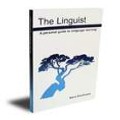Learning a new language is most enjoyable when you are learning quickly, which requires intensity. In physical training you often hear the expression "no pain, no gain." Only intensely overworking certain muscles will bring about the increased strength and performance of those muscles. Casual exercise will not do more than maintain an existing level of fitness. The same is true of language training. Your goal should be constant improvement towards fluency, not just maintenance.
You need to overwork the language processing capability of your brain by constant and frequent repetition during a period of intense learning. This period may vary from three months to twelve months depending on your starting point and your goals. During this period you must maintain a sustained commitment to your task. Fluency cannot be attained without sweat forming on your brow. It can still be enjoyable, but just as in physical exercise, the methods of training must be efficient. In fact, the greater the efficiency of the training methods the more intense the learning experience, and therefore the better the results.
The greatest intensity of learning is achieved when studying on your own, or when involved in communicating on a subject of interest with a native speaker. More than five people in a classroom is distracting and even a one-on-one class can be stressful if you are not in the mood. The more you can control what you are studying, and the more you follow your interests and inclinations, the faster you will learn.
For this to work, you need structure and discipline in your studies. You have to study a minimum amount every day. You have to measure your progress. This kind of structure is provided at The Linguist.

